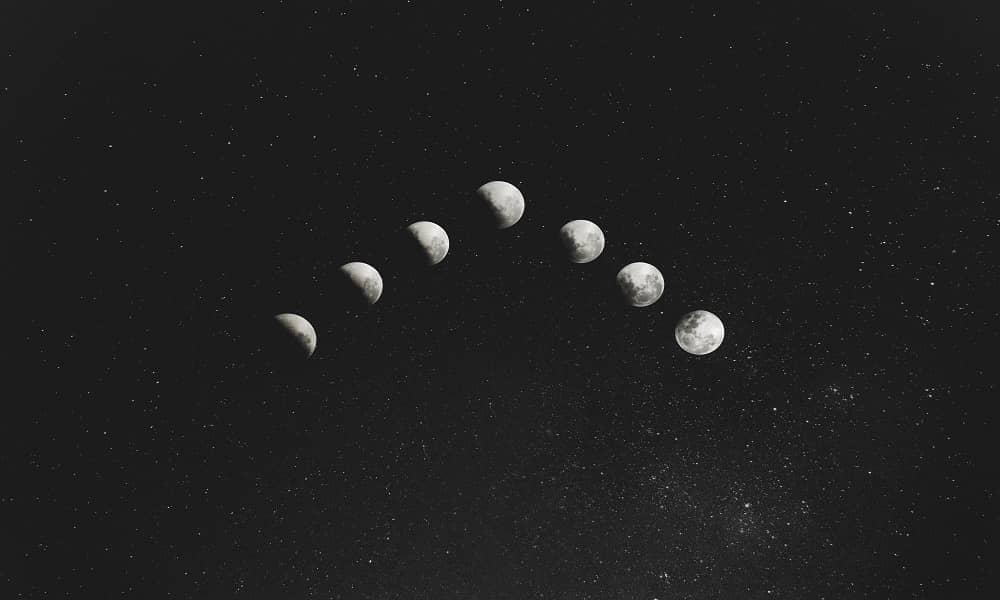


29 Oct Lunar Effect: Does the Moon Affect Your Health and Emotions?
Why are moon phases important and how do they affect humans?
This question has perhaps spanned decades of human observations and scientific studies, and there’s still so much more left to explore.
When it comes to geography, the lunar cycle clearly affects the tides and the ocean, but nothing more than that.
Some even believe it to be linked to the physiology of the human body and circadian rhythm.
Usually, we just have myths on how the moon can affect other systems in our body, and these have been around for centuries.
For example, the folklores call the moon goddess to be the reason behind the weird feeling that people had back in older times. But now, science has progressed, reasoning has developed, and it’s finally time to keenly and closely look at whether these folk tales were really true.
Can the moon cycles cause you to deliver babies early? Or can it cause your blood pressure medicines to fail?
Stick with us till the end to find out interesting myths and facts about what the moon can do to your body as you read ahead some exciting revelations by famous researchers.
Moon and Human Health: Folklores
Ancient beliefs have woven a web of mystery around the moon and its effects on physical and mental health.
In ancient times, the strong beliefs of people around the mystical appearance and the disappearance of the moon led them to stir up folklores and myths.
Surprisingly, some of these folklores have also been accepted by studies and backed up by theories that lead us to believe that sudden mood shifts can land people into medical wards.
Here we discuss some of these folktales around the lunar effect on human behavior and health. Let’s understand how does the moon affects humans according to history.
#1. The Full Moon Affects Mood and Behavior
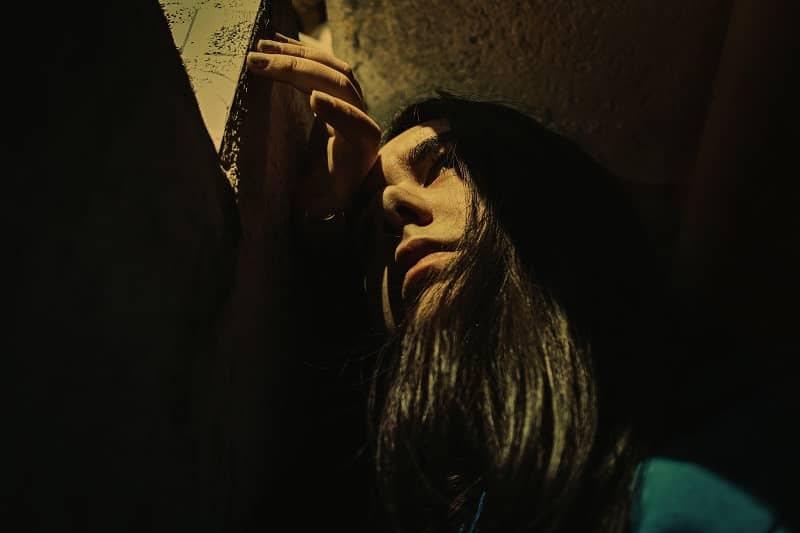

Ancient beliefs associate the moon with odd behavioral changes.
Words like lunacy and lunatic behavior were often used for people affected by the full moon causing insane thoughts to ripple inside them like:
- Sleepwalking
- Suicidal thoughts
- Illegal practices
- Aggression and violence
In fact, in many cultural practices of Hinduism, it is said that a full moon can cause adverse emotional instability and make you mentally unfit.
According to Vedic astrology, the effects of the full moon on emotions are because of its position concerning other planets.
Fun fact!
In the 18th century, England considered the effect of the full moon too seriously as they campaigned lighter sentences for people committing crimes on the full night under lunacy.
Also, the mental hospitals were kept close under strict measures to prevent the effects of the lunar cycle on patients.
For many years, mental health experts have been studying the effects and believing that there lies a deep connection between the moon and mental health.
People strongly believe that the father of modern medicine has highlighted this connection by writing that people affected by behavioral changes at night are visited by the moon goddess.
Hence, the new moon anxiety and mood swings were an integral part of medicine back then.
Although all such folklores date back to the ancient period, there are still some people who are cautious about the mental effects of the full moon.
#2. Effects of the Moon on Fertility and Menstrual Cycles
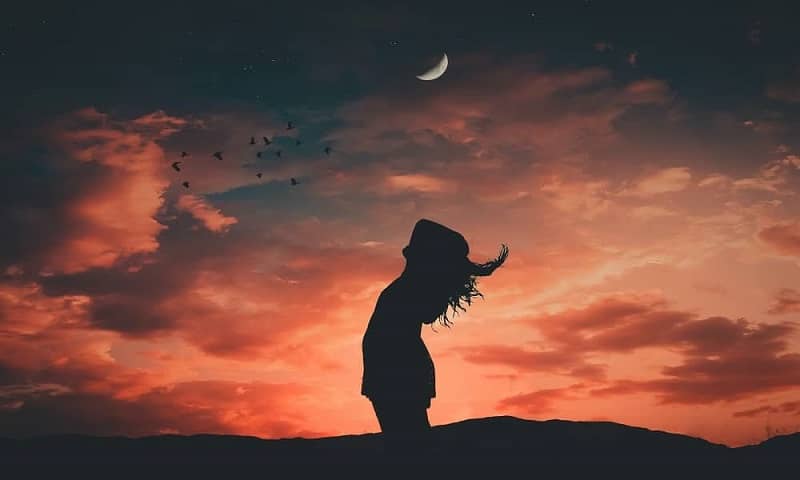


The menstrual cycle and lunar cycles have a similar length that led to the ancient belief that phases of the moon control pregnancy.
Many astrological texts were found stating that many phases of the moon coincide with women’s fertility.
One such text was found by a doctor back in the 1950s, who studied it thoroughly and planned a complete ovulation chart based on it.
According to this family planning program, he advised his patients that they would ovulate when the moon was exactly in the same position as on the day they were born.
Apart from this, many ancient cultures thought that the full moon triggered parturition.
Medical Astrology on Moon and Menstrual Cycle
According to Ayurveda, the moon has a connection with the right side of your brain that controls creativity, pituitary, and female reproductive organs.
It was considered that if one’s menstrual cycle is aligned with the lunar cycle, the moon can improve fertility and overall health.
Moreover, medical astrology finds the moon to have a promoting effect on progesterone and estrogen.
Aligning the menstrual cycle with lunar phases, according to ancient medical astrology:
| Lunar Phase | Menstrual Cycle |
| First 15 days of Waxing phases | Estrogen builds up in the body |
| Full moon | Ovulation |
| Waxing phase | Emotional confidence with a feeling of being sexually attractive |
| Waning phase | Menstruation |
Though some studies link pregnancy and lunar phases, usually health experts completely dodge the idea.
#3. Healing Effects of the Moon
Ancient medicine, Ayurveda, links the moon with the treatment of illnesses like:
- Migraines
- Rashes
- Blood pressure
- Inflammations
According to Ayurveda, the moon has a soothing effect synergically on your body and mind because of its ability to balance the excess heat.
It uses light energy from the sun without the harsh rays to heal your body.
#4. Moon and Body Fluids
Ayurveda links the moon with rasa or the fluids in plants which is almost like the plasma in our body.
Hence, it is believed that the moon can also influence the body fluids like:
- Plasma
- Interstitial fluid
- Lymph
- Menstrual fluids
It keeps all the fluids balanced keeping the menstrual cycle regular, relieving the symptoms of PMS.
People also believed that moon bathing could lead to many benefits like:
- Balancing Vitamin D levels
- Improving vitality
- Reducing inflammation
- Balancing pitta
Though all these full moon effects on the body may have made sense, yet they are ancient beliefs and have been challenged by many health experts.
How Much Truth There is to These Beliefs?
We need to find out the reality of whether the moon really affects physical and mental health or not.
Let’s take a deep plunge into understanding the various studies done on the effects of the moon.
How Does the Moon Affect Humans Health: Studies
The ancient beliefs are not completely groundless; many pieces of evidence support some of these ideologies.
Although scientists continue to study about various effects of lunar phases on the human body, some researchers have already published their work that etches out the following links.
#1. How Does the Full Moon Affect Sleep Cycle?
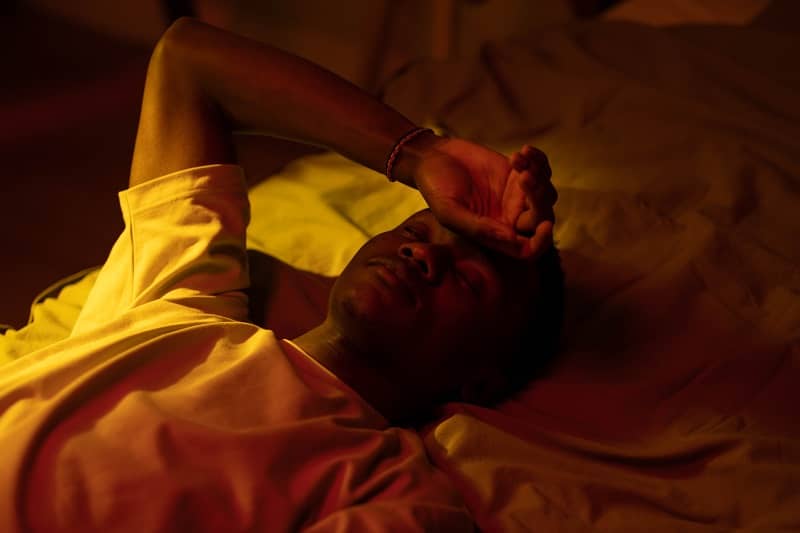


Several studies associate the phases of the moon with quantity and quality of sleep.
Based on the key findings on an analysis of major studies, it was found that:
- The full moon can interfere with the quality of your sleep by delaying the time taken for you to fall asleep.
- It can also reduce the duration that you sleep for.
- The full moon has different effects on sleep depending on sex. For females, it improves the quality of sleep.
Study I
A sleep analysis was conducted using several measuring metrics like:
- Sleep structure
- Electroencephalographic activity during the non-rapid eye movement when a person is asleep
- Secretion of two major hormones – melatonin and cortisol
However, during the entire study, no participant was aware of the analysis being related to the effect of lunar phases.
Results of the Study:
The electroencephalogram delta activity showed:
- Non-rapid eye movement (deep sleep indicator) decreased by 30% during the full moon.
- There was a decrease in sleep duration by 20 minutes.
Also, the time taken by participants to fall asleep was increased by 5 minutes.
Further, the hormonal levels of melatonin showed a decline proving that the sleep quality had decreased.
Altogether, the study establishes evidence that lunar rhythm can interfere with sleep cycles.
Study II
This study explored the effects of the lunar phase on the sleep cycle to a further extent using objective as well as subjective parameters.
A total of 205 participants were enrolled for the study including 91 males and 114 females.
Windowless sleep laboratories were prepared for these participants.
Each night, the distance in days to the date of the closest full moon was measured to analyze sleep records and classify them for three lunar classes.
Three major factors were considered under the observation:
- Lunar class
- Age
- Sex
Results of the Study:
It was observed that there was a significant observation of lunar class and different sexes in relation to sleep duration.
On conducting separate analysis on men and women, it was further found that:
- Women – Stage 4 sleep and rapid eye movement were reduced while sleeping on days nearer to the full moon.
- Men – The REM duration increased in men around the same time.
This shows that the effect of lunar sleep can vary in women from men.
Although the above two studies provide evidence of how sleep can be linked with the phases of the moon, we still have one prominent research that discourages any such link.
Study III
This study too aimed at evaluating both subjective and objective effects of the lunar phases on the sleep cycle.
It involved 2125 participants out of which 51.2% were women.
Subjective sleep quality was analyzed with the help of a self-rating scale while sleep electroencephalography was used on 759 participants.
The levels of cortisol present in the saliva were also analyzed at:
- 30 minutes before waking up
- 30 minutes after waking up
And lunar phases were further grouped into:
- Full moon
- Waning moon
- New moon
Results of the Study:
No significant differences were noted in subjective sleep quality.
Overall, the study concluded that there was no significant effect of lunar phases on sleep reported.
VERDICT:
We have contradictory conclusions on whether a full moon really affects sleep. While some studies support the theory, others refute the claims.
#2. Moon and Menstrual Cycle – Can the Moon Affect Your Period?
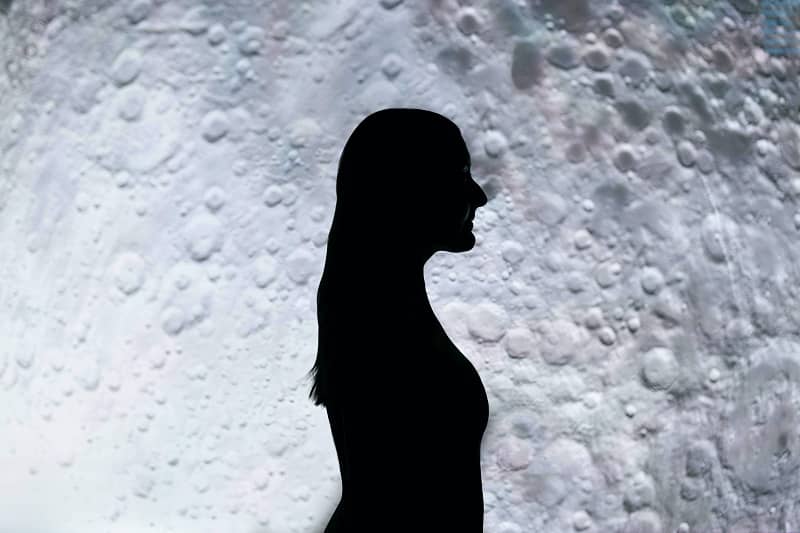


The lunar cycle and the menstrual cycle are almost the same lengths, which is one month.
Because of this similarity, people have always pointed out a connection between these two.
Well, on a whole, studies show many contrasting opinions.
While the research found no relation between the two cycles, another study finds the relationship to be synchronized.
On analysis of the following studies, we can find whether the full moon affects females or not!
Study I
This study used the cross-approximate entropy method to analyze the relationship between the onset of menstruation and the lunar phase.
74 women were considered for this year-long study that included 980 menstrual cycles.
The reports of the study came out to be not in favor of the old beliefs.
No synchronicity between the lunar phase and the menstrual cycle was reported.
Study II
The study included 826 volunteers aged between 16 and 25 years with regular periods.
According to the analysis:
The onset of menstruation among 28.3% of women was around the new moon, while during other phases, this range was between 8.5% to 12.6%.
These results were based on the laboratory findings, investigations, and clinical experiences.
This provided evidence of a synchronous relationship between the moon and the menstrual cycle.
Study III
This study investigated how does the moon affect us in terms of:
- Menstrual cycle onset
- Subjective sleep quality
For this, complete data of 6 recent menstruation onset was collected for 529 women using a specific app.
A questionnaire survey data about sleep quality was also collected from each of the participants.
According to the results:
- No association was found between menstruation and lunar phases.
- The light period saw good sleepers with the onset of menstruation.
- During the dark period of the moon, the number of poor sleepers who had started with their periods was higher.
VERDICT:
Altogether, no association of lunar phase with periods was reported, but yes a deep connection was established between the moon and sleep pattern.
On analyzing all these studies, we can see that in no way does the moon affect periods among women.
But can it affect the birth rate?
#3. Moon and Birth Rate
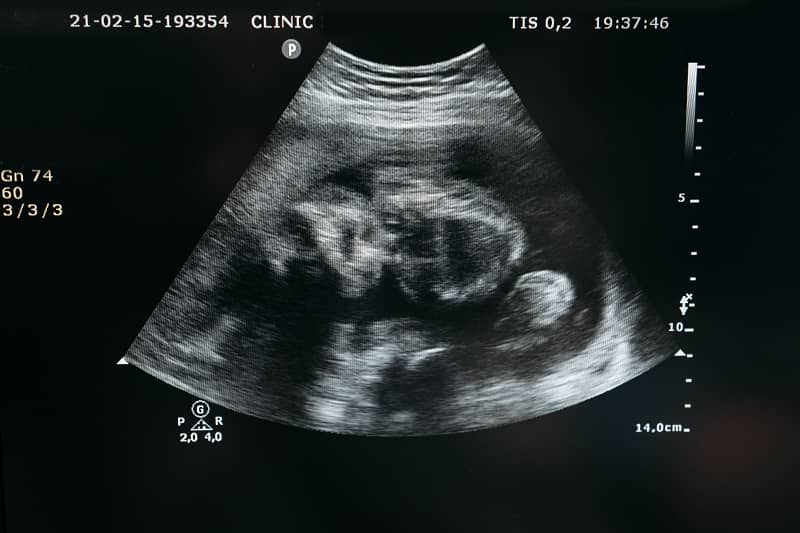


There was a time when medical staff at hospitals felt that more pregnancies were coming around lunar cycles.
Hence, studies were conducted to bust this myth and come up with some solid evidence against the same.
Study I
The study was conducted to determine if the birth rate had something to do with meteorological conditions and lunar cycles.
Birth records were taken between 1995 and 2000. These daily accounts were then merged with the records of the lunar phase for the same time frame.
However, on analysis, it was found that there were no significant correlations between the birth rate and the lunar phase.
Study II
This study was conducted to examine the frequency of births under the influence of the lunar cycle.
A secondary analysis of 564,039 births was considered, as identified by birth certificates around the time between 1997 to 2001.
However, no difference in the birth rate, route of birth, or birth complications were reported across the 8 phases of the moon.
VERDICT: Since even the analysis of 5 years of data couldn’t demonstrate any positive result, we again bust a myth here about the moon being associated with birth rates.
#4. Moon and Its Effects on Mood and Behavior
Moon and sun both have a significant effect on your psychology as they control the circadian rhythm.
As per age-old beliefs, the natural influence of the moon on your psychology also regulated mood and behavior.
However, we cannot be very sure about whether the moon still has the same control over the circadian rhythm because of the modern lifestyle.
All those light bulbs and tube lights no longer let your circadian work along with the natural light.
This again raises a question on the moon and its effect on behavior and mood.
Hence, to find out if the moon affecting mood is a true thing, let’s have a look at the following studies.
Study I
This study was more of an analysis of what effects the moon could have on the physiology of humans and animals.
According to the detailed factual study of various factors, the facts stated were:
- Many animal studies revealed that the lunar cycle affects hormonal changes in insects.
- The lunar clock can influence the hypothalamus-pituitary-gonadal axis among fishes.
- In birds, there’s a variation among the cortisol and melatonin release that affects mood.
- Some human studies also exhibited that moon changes can cause hormonal imbalance among humans that can lead to behavioral changes.
However, since most of the results of this study were based on the studies conducted on animals, we need more research to establish any verdict.
Study II
A population-based study was conducted to examine the aggressive behavior among people under the influence of lunar phases.
The study considered all the crimes that were committed in the period between 1999 and 2005. In total, 23142 crimes were analyzed based on:
- Lunar phase
- Sex
- Place of crime
According to the results, there was no association between the series of crimes and different lunar phases.
Further, the results also didn’t come out to be true about the relationship between the moon and violent behavior.
VERDICT:
The results indicate that there’s no such influence of the moon that leads to behavioral and mood changes.
Regardless, there is some evidence that hints at lunar phases being actively accountable for various mental changes.
#5. How Does a Full Moon Affect People Mentally?



There have been many studies conducted in the past that link psychological disorders and full moon depression anxiety.
However, as per modern researchers, even after reviewing records and conducting studies, there’s no possible link between mental health and the moon.
Further, as per records from the ancient era, the moon is likely to instigate thoughts like:
- Assaults
- Trauma
- Suicide
But let’s find out what modern studies have to say about these beliefs.
Study I
The study explored the impact of lunar phases and weather on trauma. For proper analysis, many incidences of injuries with the variation in the lunar cycle were considered.
The total number of trauma patients was extracted from an emergency ward for the period of 36 years (1970 – 2005).
Factors considered were:
- Age
- Sex
- Cause of injury
- Severity of injury
Furthermore, this was combined with the effects of various weather conditions and lunar phases around the incidents.
Results of the study:
The results demonstrated the following findings:
- Good weather caused around 10.1% of incidents more than the normal weather
- Full moon saw 2.1% lower trauma rates than a new moon
Altogether, the full moon was considered to be less traumatic and, hence, not associated with a bad influence on mental health.
Study II
A population-based study was conducted to examine the effects of the moon on suicide.
Several factors were considered during the study:
- Age
- Sex
- Method of suicide
For the analysis, all suicide cases were considered from Middle Franconia between 1998 and 2003. The number was around 3351 events of suicide.
They were further categorized using the factors above and the method was subcategorized as violent and nonviolent.
According to the analysis, no evidence supporting the effect of lunar phases on suicide was reported.
VERDICT:
Hence, the assumptions around the moon as a contributory factor for mental illness are not valid.
#6. Moon’s Effects on Blood Pressure
A study aimed at examining the effect of the moon on various body functions came out with a solid claim.
It measured the following rates immediately after conducting a step test among 76 volunteers:
- Resting heart rate
- Blood pressure
- Physical fitness index
- The peak of HR and BP
Further, recovery HR and BP were measured during the lunar cycle after conducting a step test to compare the numbers.
VERDICT:
The blood pressure was found 5 mm Hg lower during both the new moon and full moon phases.
Hence, it was proven that the moon can have some influence on your blood pressure.
Further, another study that we found was about the popular concept of the moon causing blood loss during operations because of its gravitational effect on fluids in our body.
#7. Moon, Surgery, and Blood Loss
The research aimed to test if the hypothesis around the moon and its impact on surgeries were true or not.
For this, operations records of 27,914 patients who had undergone general, visceral, or vascular surgery between august 2001 and 2010 were considered.
Dates of these surgeries were allocated near the lunar phases.
VERDICT:
According to the results, there were 111 lunar cycle cases under observation but no statistical peaks of abnormal bleeding came into notice.
Hence, the scientific data doesn’t indicate any validity in the theory of the moon causing heavy blood loss during surgeries.
This also further challenges the thinking of the moon’s gravitational pull affecting the body fluids.
Let us see what researchers have to say about it.
#8. Does the Moon Affect the Water in Our Body?
There hasn’t been much research demonstrating the extent to which the moon can affect water in your body.
However, certain animal studies report that the moon can cause a significant change in body fluids.
Animal Study
The study was aimed at examining the effects of the moon on the serum levels of sodium and lithium in rabbits.
24 rabbits were categorized into two groups – one group for sodium and another one for lithium.
Both the groups were studied where one group was given lithium carbonate orally daily.
On specific days of the lunar cycle, blood samples were collected from the rabbits.
While examining, it was found that:
High serum sodium levels were found on day one of the lunar cycles while the lowest was on the 15th day.
In the lithium group, the highest lithium was on day 1 and the lowest on day 17th.
The study stated that the possible fluctuations were because of the effect of the moon on the body fluids of rabbits.
VERDICT:
While this study puts forth a claim of the moon showing its effects on the bodily fluids of rabbits, we need more research and support about the same for humans.
Hence, for now, no research has been able to prove the lunar cycles being influential on water or any other body fluids in humans.
Final Thoughts
Lunar cycles have been associated with the human body for ages.
With Ayurveda and many ancient books correlating the moon with the human body, many myths have only developed with time.
One of the very first associations made was between the menstrual cycle and lunar phases. But this has, since, been debunked.
Similarly, other associations as well do not show any concrete data that can act as solid evidence.
There are many more such myths that science now busts with the help of technology and logical reasoning.
In some manners, though, the moon and human body connection will perhaps always remain unsolved. The main reason for that is the extreme fascination humans have with the mysticism of the unknown.
Liked what you read? Spread the word by sharing this article with your friends.



No Comments